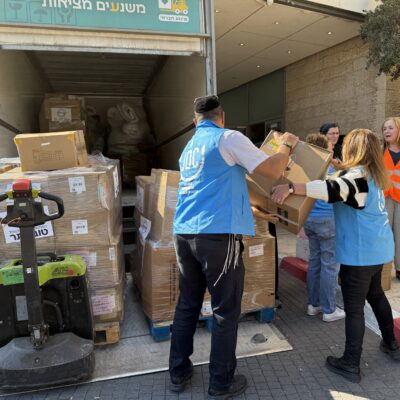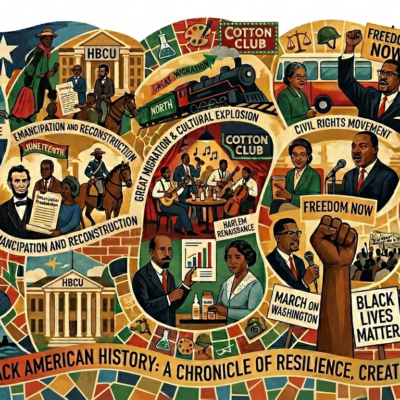Learning the Lupine Lesson

By Michael Even-Esh and Sheryl Fox Adler
There’s a beautiful flower that blooms in Israel every winter and spring, and produces a bean that is edible. It’s called the Lupine, and in Hebrew it is known as “Turmus.” If the Hebrew term reminds you of hot water, it’s not a coincidence. The lupine bean is full of toxins and can be dangerous to humans and animals. The Sages in the Talmud had a solution: soak the beans in hot water a number of times, and voila: this bitter, toxic plant becomes a sweet, edible delicacy (“like this Turmus, which must be scalded seven times, and then you eat it for dessert,” Tractate Beitza 22, 2). The Turmus, then, is not just a plant with a bean; it is a symbol for turning something bitter into something sweet.
In the past few months dealing with Covid-19, the world has tasted much bitterness, with job loss and financial distress, despair and isolation, and illness and loss of life. Our Jewish nonprofit organizations have experienced every aspect of this pain as well. Here at Livnot U’Lehibanot (To Build and Be Built), we have found ways to invoke the “Turmus” idea of turning bitter into sweet during difficult times and we wanted to share our experiences with the rest of the nonprofit Jewish world.
Forty years ago, Livnot began offering Jewish identity programs geared for those with little or no Jewish background, in the Old City of Tzfat, in the mountains of the Upper Galilee. The program emphasizes the community aspect of Judaism much like many Jewish sleep-away camps, but with an age demographic of 21 years-old and up who are constantly challenged with service through manual labor; strenuous hikes; and new ideas based on Jewish values. It became, according to our alumni a “life-changing experience,” “a pivotal point in their lives.”
For the past five weeks in the wake of Covid-19, we’ve shifted, applying the wisdom of our Sages to sweeten the current situation with an initiative we believe is worth replicating by other Jewish organizations: renew connections with past participants through reunions and weekly programming. After five weeks with 4-5 reunions and the same number of learning opportunities a week, we are finding that these are no normal get-togethers. Quarantined lives have left people yearning to make meaning of it all, and thirsty for whatever connects them to their Jewish identities, Israel and others.
We wondered, as many of you may be wondering about your own organizations, whether it really is possible to recreate and continue to make relevant those pivotal, life changing moments created in some cases decades ago. Our experience says it not only is – but that it’s a unique opportunity to do so. Across the 22 reunions we’ve held so far, we’ve averaged a 50-80% participation rate per program. We’d like to share our strategy and some best practices we are honing in the hopes you’ll join the effort to use powerful memories to strengthen the Jewish world at a time the world needs our community’s light to shine.
Livnot’s plan is three-fold:
1. Organize reunions by alumni group – using the Zoom platform – “Zoomunions”
2. Offer 3-5 weekly classes to alumni via zoom gatherings on various Jewish-value-related subjects dealing with Judaism and Israel
3. Nurture ongoing relationships through group-by-group continued conversation and learning.
Here are our suggestions based on what has worked:
1. Database Quality
The Covid-19 situation is an optimal time for nonprofit alumni-based organizations to scrub their database and update past participants’ contact information. People are more accessible now, and more likely to respond, than ever before. With an updated and reliable database, it is possible to maximize involvement.
2. Stick-to-itiveness
Contacting people, getting their contact information, and encouraging them to participate in a digital reunion is not a simple task and requires a lot of hard work. It takes time, effort, and budget to find staff who can sit down and connect to each and every alumnus. But stay at it, and the effort will pay off royally in cherished, reinvigorated connections.
3. Create Authentic Space
The content of the reunion should reflect program goals. We begin every session with inspirational Divrei Torah (short and sweet) by a former staff member to set the context. Participants give an update on their own lives – with encouragement to proudly display kids … pets, etc. – and mention one memorable moment that they took with them from their program. We answer questions about how Livnot has evolved and we invite them to take an active part in Livnot’s continuity going forward.
4. Reserve Duty
Bring back your staff! Amazingly, past staff, and madrichim, have been willing to come back and volunteer their time in joining the reunions. The “naches” they receive from reconnecting with their groups, has created boundless joy and meaning for them. Rekindling these cherished relationships is the most important ingredient for successful turnouts and ongoing contact.
5. Multi-directionality
We run these reunions for two different complimentary reasons:
- “Lishma” – to allow people to reconnect to their old friends, and for the powerful Jewish communal feeling of constant growth and learning. We are surprised at how moved people are, how emotional they get, and how much they have been yearning for such reconnection.
- Institutional advancement, i.e., recruitment, “getting the word out,” and in some cases, fundraising. All sessions are recorded so that participants who’ve missed them can access the experience. These recordings also provide documentation of outcomes and journey.
6. Keep it Going
The goal is to keep participants learning and growing together and we look for every possibility to facilitate this. Almost every program wants another reunion of some kind, and we are open to their new ideas how best to do this.
Our Jewish community and world need us to rekindle relationships with alumni and we encourage other Jewish educational nonprofit programs to join us in this historic time to do so. If we collectively reconnect the present with the cherished past for the alumni, we can join together in this historically difficult time to build a stronger Jewish future. We can invoke the Turmus/Lupine symbol, and continue the ancient Jewish tradition of turning the bitter into the sweet.
Michael Even-Esh is an outdoor educator in Israel, working with institutions such as Livnot U’Lehibanot for 30 years, and Birthright-Israel for 20 years.
Sheryl Fox Adler is a management consultant, trainer, and coach working with businesses, non-profit organizations, executives, schools and young adults across strategic planning, high stakes communication, collaboration, facilitation, positive education, and achieving tough goals.

 Add EJP on Google
Add EJP on Google









